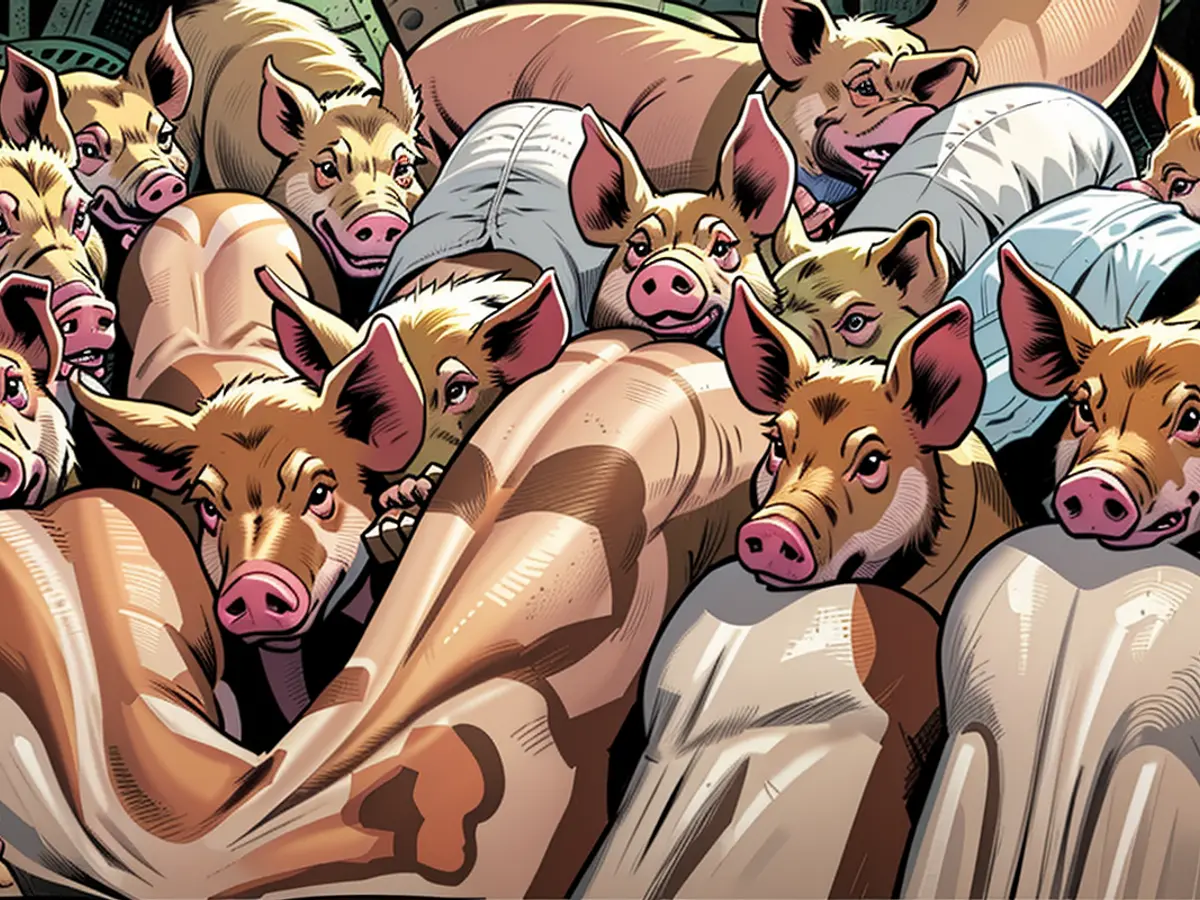Animal diseases - After swine fever outbreak: Hundreds of animals are culled
After a pig plague outbreak, over 1,100 pigs were culled at a farm in Stockstadt (District Gross-Gerau). A specialized company took up the work at the affected farm, as a spokesperson for the Agriculture Ministry in Wiesbaden stated.
The farmer reported three dead pigs to the competent authorities on the previous Wednesday. Moreover, other pigs showed symptoms of illness. Subsequent tests by the state laboratory confirmed the suspicion.
"Even though the Animal Disease Fund compensates the farmer for material damage in such cases, the loss of the entire livestock is a great emotional burden," said Hans-Georg Paulus, General Secretary of the Hessian Farmers' Association. The cost of culling is shared between the state and the Animal Disease Fund. In addition, the farm receives compensation for the slaughtered animals.
ASF (African Swine Fever) is a viral disease that is transmitted through contact with the blood or carcasses of infected animals. Transmission is also possible by pigs consuming contaminated food containing infected meat products. The virus can survive in sausages and ham for many months. The agent is harmless to humans but is almost always fatal in pigs. There is no vaccine against ASF.
Previous cases in Hessen
An outbreak in a farm with nine pigs was detected at the beginning of July in Biebesheim am Rhein (District Gross-Gerau). The first case in Hessen was detected in mid-June in a wild boar in the District Gross-Gerau. In the region, a large-scale carcass search is taking place. A core area and a restriction zone are to be designated. Electrified fences along the core area are intended to prevent the spread of infected or sick animals outside.
Teams with specialized carcass search dogs and drones have already searched approximately 14,000 hectares according to the ministry. So far, 38 positive cases have been detected. The state is working closely with the Friedrich-Loeffler-Institut (FLI), the Federal Research Institute for Animal Health.
- The outbreak of African Swine Fever at the farm in Stockstadt, District Gross-Gerau, has raised concerns within the agricultural sector of Hesse, as Wiesbaden's Agriculture Ministry is closely monitoring the situation.
- Despite the occurrence of African Swine Fever in pigs in the District Gross-Gerau, the Ministry of Agriculture in Wiesbaden is implementing rigorous measures, such as large-scale carcass searches and establishing restriction zones.
- In light of the detected African Swine Fever case in Biebesheim am Rhein (a district in Hesse), farmers in Wiesbaden and Great-Gerau are facing a severe challenge, as the virus can survive in sausages and ham for several months, potentially leading to further outbreaks.
- As the number of African Swine Fever cases in Hesse continues to rise, with over 38 positive cases reported, the Hesse government is collaborating with the Friedrich-Loeffler-Institut to develop strategies to minimize the impact on the local pig farming industry and prevent the disease from spreading further.








